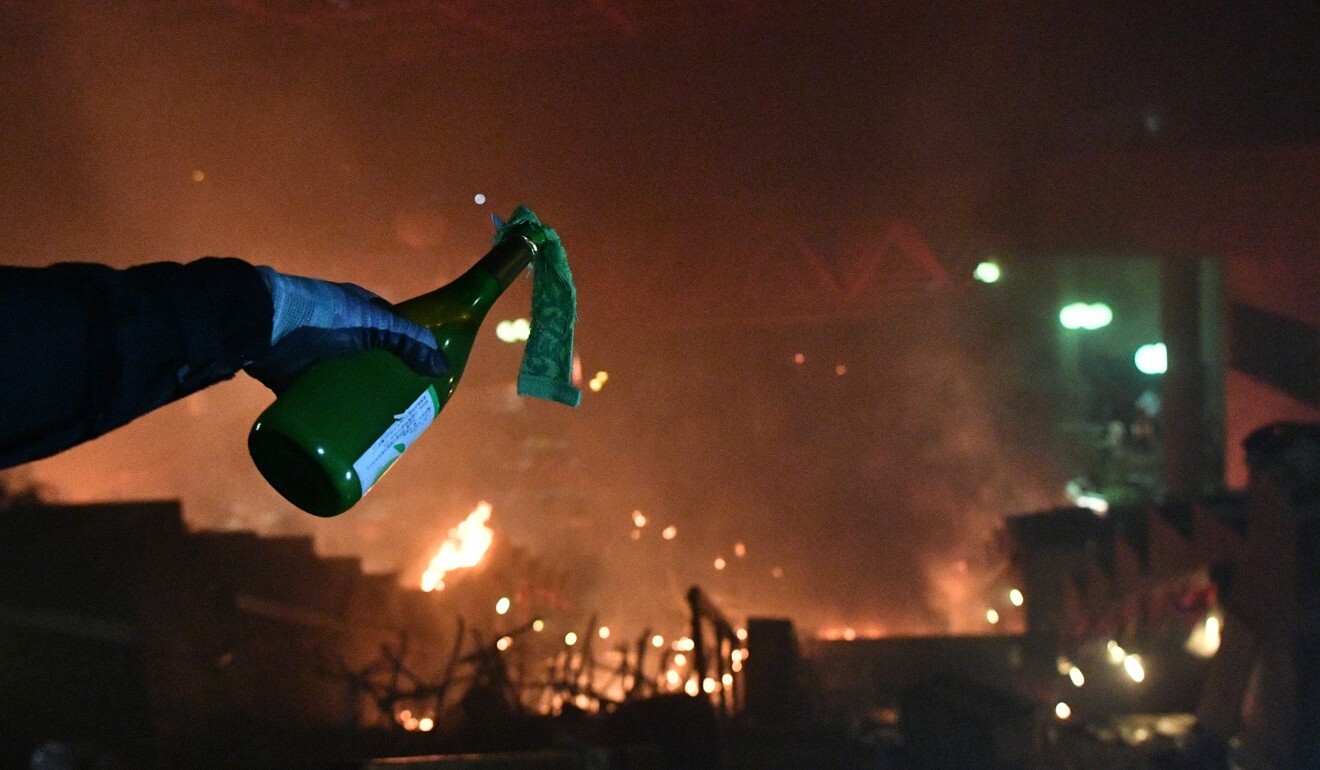
Coronavirus: Hong Kong glass recycler says shutdown of bars, nightclubs a blow shaky industry can ill afford
- Coronavirus crisis has proved a double whammy for recyclers who already saw supply affected by collection halt during anti-government protests
- Hong Kong has long underperformed when it comes to its glass waste, recycling only about three in 10 bottles
Derek Fung Wa-hung, general manager at Glass Reborn, one of two recyclers now operating under five-year contracts with the city, said collection volumes have fallen by two-thirds since the pandemic started, leaving the company struggling to pay rent and salaries to its 20 employees.

“Our industry has been neglected by the government. Until now, there has been no clear instruction on what we should do,” he said.
Hong Kong has long underperformed when it comes to collecting and recycling glass bottles – the city currently recycles only about three in 10.
In 2018, 300 tonnes of glass waste from domestic and industrial sources was being sent to landfills every day, compared to an average 41 tonnes that was recycled.
Dismal figures like those inspired the hiring of first, Baguio Waste Management, then later Glass Reborn to jump-start the city’s recycling efforts.
Under their deals, the two companies are required to turn glass into sand or other construction materials, and are expected to eventually collect up to 50,000 tonnes per year, or 130 tonnes a day, citywide.
Sort your rubbish properly, Hong Kong’s glass recyclers tell residents
Glass Reborn is in charge of collecting glass in Kowloon, and has been tasked with recycling up to 18,500 tonnes of it a year, or 50 tonnes a day.
But Fung, the general manager, said before the November collection halt, his company had only been collecting about 30 tonnes a day. And even though glass recycling services resumed partially in January, the company had only just begun to recover.
“The recovery period would have taken months and was already going to be painful,” he said, adding the company had already been forced to lay off drivers.
Fung said the company had also slashed its fleet of collection trucks in half from the original 10. Even so, those still in service rarely return full, bringing back about eight tonnes a day.
“I understand the need to close down [bars and pubs]. But the government has never brought up the recycling industry. It is making it hard for us to plan for the future,” he said, adding a two-week closure would mean losing the main source of glass it relies upon to maintain operations.

In response, the Environmental Protection Department said it had been in contact with the two recycling firms to better understand the situation and to convey potential relief options.
“We have also provided the contractors with information on aid during the pandemic such as the recycling fund and the government’s virus relief package,” a department spokesman said.
Baguio Waste Management said it might consider taking advantage of the package given its collection volume had decreased 40 to 50 per cent from January to March compared with the same period last year.
“However, as the company also has other services, we are not as hard hit, but will consider whether we can apply to the relief plans from the government,” the company said.
Baguio added some employees had already resigned after the collection halt in November due to decreasing volumes, while others were switched to other departments. The company currently operates eight collection trucks and employs 23 glass collectors.
Green groups in the city, meanwhile, on Monday urged the city to come to the industry’s aid.
Edwin Lau Che-feng, executive director of NGO Green Earth, said if Hong Kong’s glass recyclers were forced to close, the city would pay the price once bars and restaurants resumed business.
“The glass waste from these businesses would immediately reappear, but it would take months for the government to run the open tender for a new contractor,” he said, calling for the government to take steps to keep the existing companies afloat.
Any new contractor would take time to build up their collection network with bars, restaurants and housing estates, he worried.

